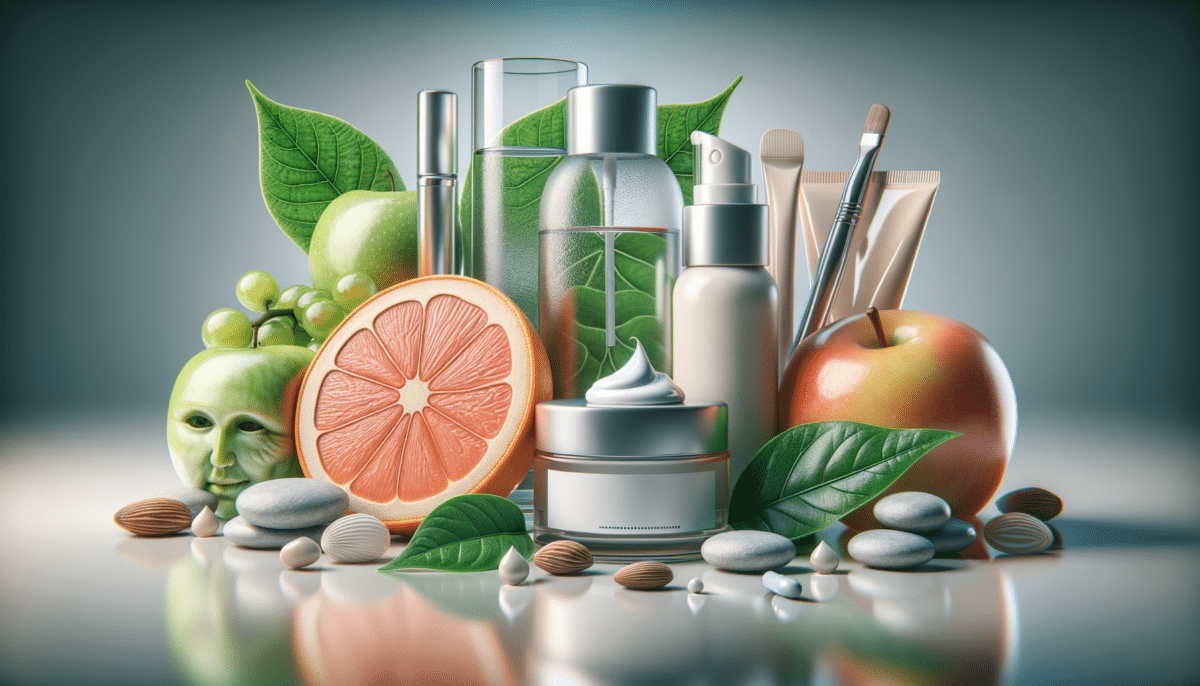The Science Behind Aging and Wrinkles
Aging is an inevitable biological process, characterized by gradual changes in the skin’s structure and function. As we age, the production of collagen and elastin, two proteins crucial for skin elasticity and firmness, declines. This decline results in the thinning of the skin and the formation of wrinkles. Furthermore, the skin’s ability to retain moisture diminishes, leading to dryness and the accentuation of fine lines.
External factors such as sun exposure, pollution, and lifestyle choices like smoking and diet also play significant roles in accelerating the aging process. Ultraviolet (UV) rays from the sun break down collagen fibers and cause abnormal elastin to accumulate, leading to the production of enzymes that degrade collagen. This process, known as photoaging, is responsible for many of the visible signs of aging. Understanding these mechanisms is essential for developing effective anti-aging strategies.
Advancements in dermatological research have shed light on various methods to combat these changes. These include topical treatments containing retinoids and antioxidants, which help to stimulate collagen production and neutralize free radicals, respectively. Additionally, innovations in cosmetic procedures, such as laser therapy and dermal fillers, offer promising results in reducing the appearance of wrinkles.
Effective Skincare Regimens for Anti-Aging
Establishing a consistent skincare routine is vital for maintaining youthful skin. A comprehensive regimen typically includes cleansing, exfoliating, moisturizing, and applying sunscreen. Cleansing removes dirt and impurities, while exfoliating helps to shed dead skin cells, promoting cell turnover and a more radiant complexion.
Moisturizers play a crucial role in maintaining skin hydration, which is essential for preventing the formation of fine lines. Products containing hyaluronic acid are particularly effective, as they attract and retain moisture in the skin. Additionally, incorporating serums with active ingredients like vitamin C can enhance skin brightness and reduce pigmentation.
Sunscreen is arguably the most critical component of an anti-aging skincare routine. Daily application of broad-spectrum sunscreen protects the skin from harmful UV rays, significantly reducing the risk of photoaging. Dermatologists recommend using a sunscreen with an SPF of at least 30, even on cloudy days or when indoors, as UV rays can penetrate windows.
Diet and Lifestyle Choices for Youthful Skin
Diet and lifestyle choices have a profound impact on skin health and aging. A diet rich in antioxidants, such as fruits and vegetables, can help combat oxidative stress, a key contributor to aging. Foods high in omega-3 fatty acids, like salmon and walnuts, promote skin elasticity and hydration.
Staying hydrated is equally important, as water helps maintain skin moisture and elasticity. Experts recommend drinking at least eight glasses of water a day to support overall skin health. Additionally, reducing sugar and processed food intake can prevent glycation, a process that damages collagen and accelerates aging.
Lifestyle habits such as regular exercise and adequate sleep also play crucial roles in maintaining youthful skin. Exercise improves circulation, delivering oxygen and nutrients to the skin, while sleep allows for cellular repair and regeneration. Adopting stress-reducing practices like yoga or meditation can further enhance skin health by lowering cortisol levels, which are linked to increased oil production and acne.
Innovative Treatments and Technologies
Recent advancements in dermatology have introduced a variety of treatments and technologies designed to combat aging. Laser resurfacing, for instance, uses concentrated light beams to remove damaged skin layers, promoting the growth of new, smoother skin. This treatment is particularly effective for reducing fine lines and improving skin texture.
Another popular option is microneedling, a procedure that involves creating tiny punctures in the skin to stimulate collagen production. This minimally invasive treatment can improve skin firmness and reduce the appearance of scars and wrinkles.
Injectable treatments, such as dermal fillers and neuromodulators, offer immediate results in reducing the appearance of wrinkles. Fillers, typically made of hyaluronic acid, plump the skin and smooth out lines, while neuromodulators, like botulinum toxin, relax facial muscles to prevent wrinkle formation. These treatments, often combined with topical skincare, provide a comprehensive approach to anti-aging.
Natural Remedies and Holistic Approaches
For those seeking more natural or holistic approaches to anti-aging, several remedies can be explored. Essential oils, such as rosehip seed oil and argan oil, are renowned for their hydrating and rejuvenating properties. These oils can be applied directly to the skin or added to moisturizers for an extra boost of nourishment.
Herbal supplements, like green tea extract and ginseng, are also popular for their antioxidant effects, helping to protect the skin from environmental damage. Additionally, incorporating practices such as facial massages can enhance circulation and promote lymphatic drainage, leading to a more youthful appearance.
Mindful practices like yoga and meditation not only reduce stress but also improve skin health by promoting relaxation and balance. These holistic approaches, when combined with a healthy lifestyle and skincare regimen, can significantly contribute to maintaining youthful, radiant skin.
